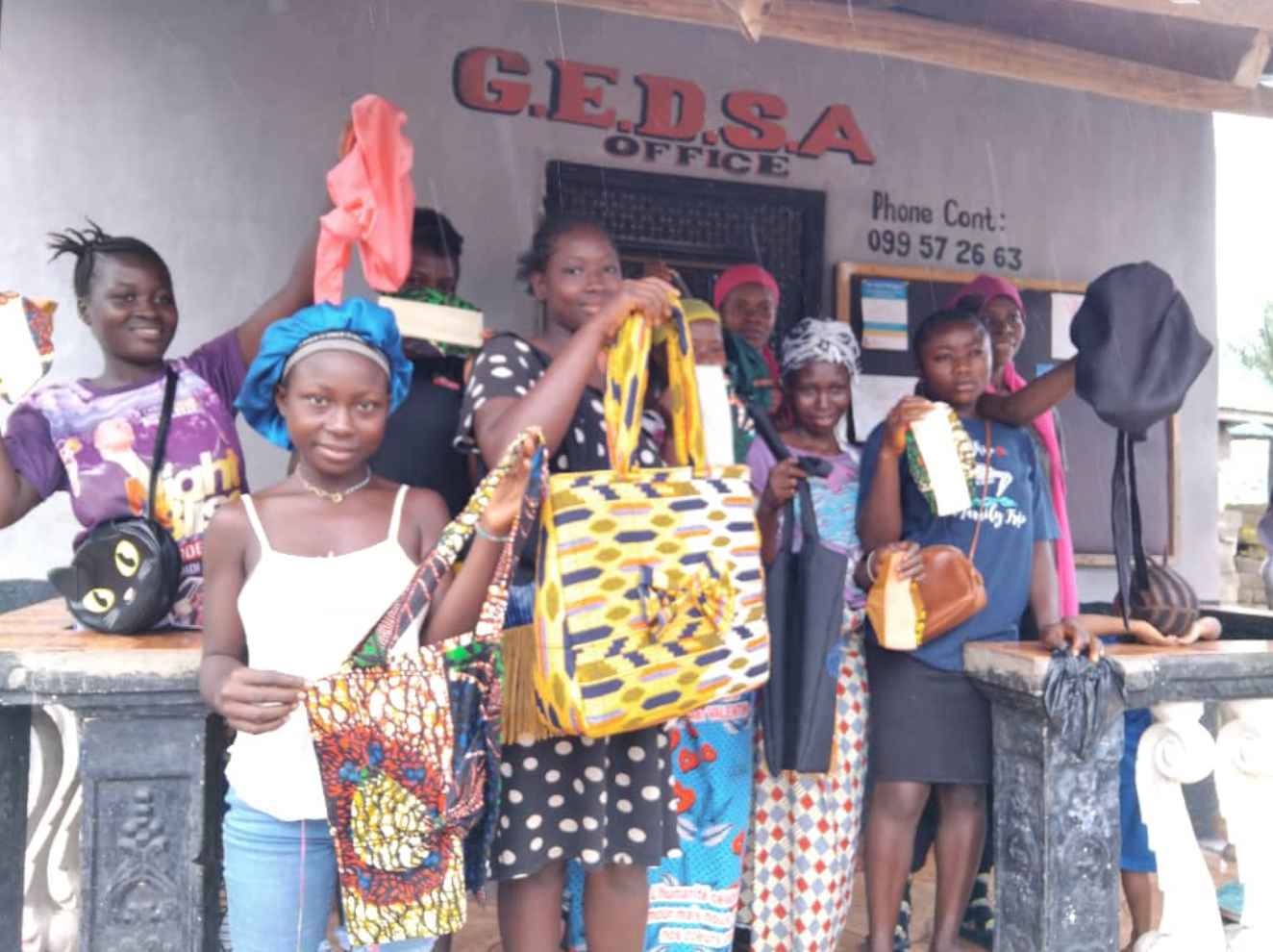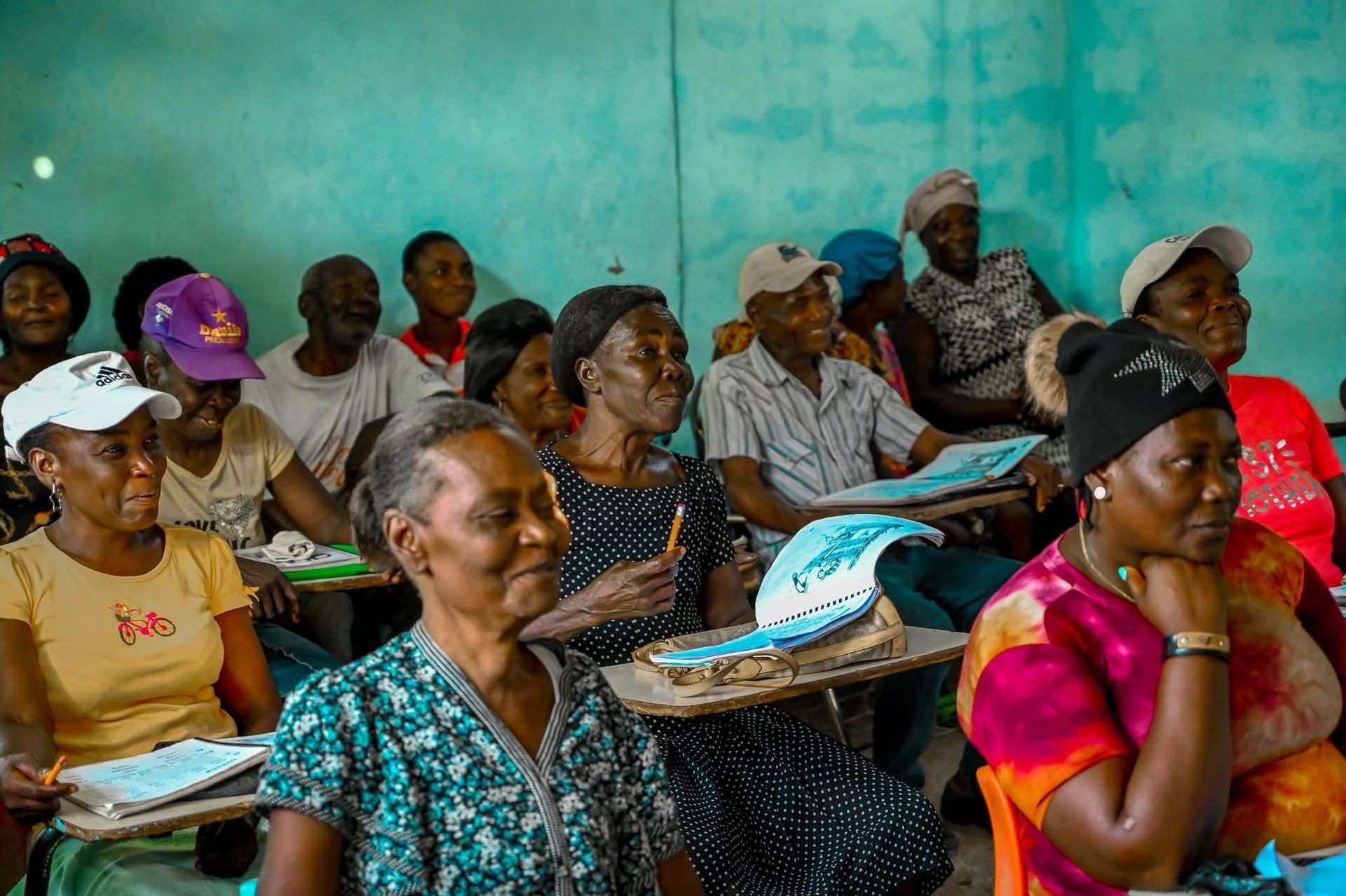Human Rights Education: a global framework
Audrey Osler discusses human rights education in a global framework. As well as the Universal Declaration of Human Rights, Convention on the Rights of the Child and Sustainable Development Goals there are many social movements for justice.
This framework provides legitimatisation for justice orientated work to empower students, and offers an alternative frame of reference for diversity in the student population.
It empowers young people by putting their concerns at the heart of schooling, teaches them life skills and how to make a difference.
Audrey Osler: I want to commend the NEU, The Gambia teachers union and the Foundation for working on this practical resource and competition which can engage everybody.
What is human rights education in a global framework? First we need to look at the successes we can celebrate in human rights education over the past years, and then look at some challenges.
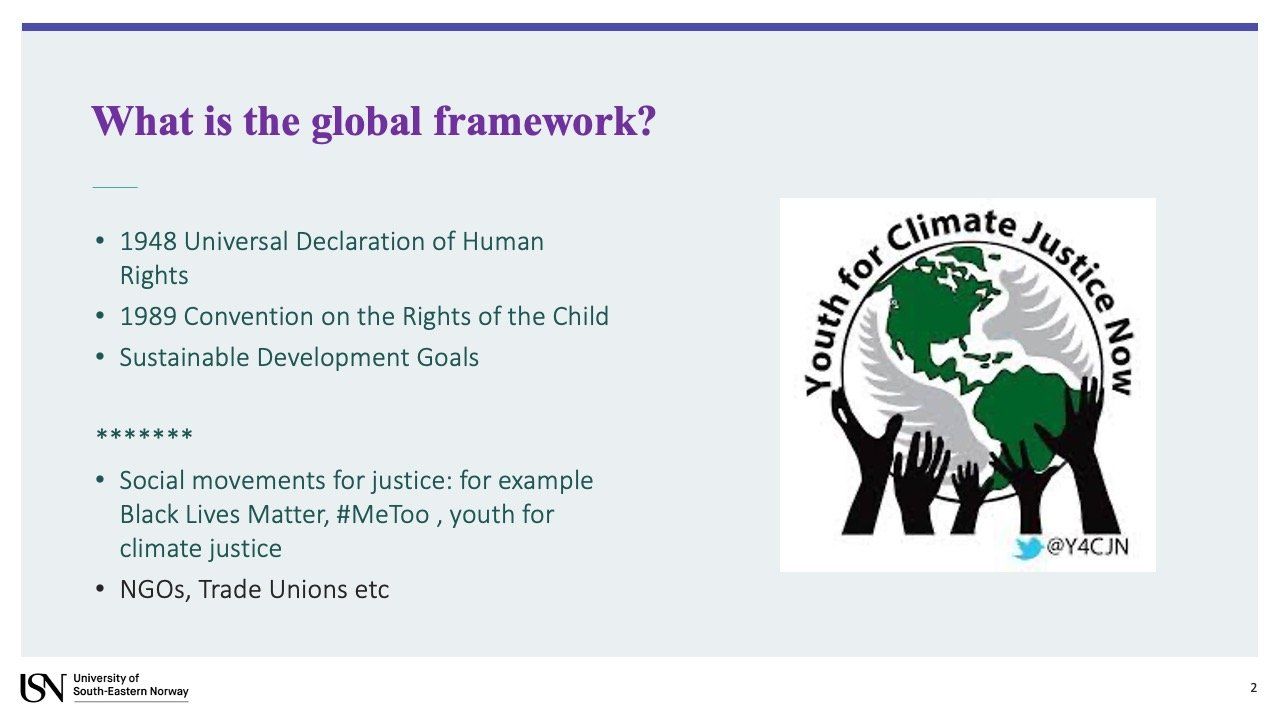
The legal framework for human rights education is the 1948 Universal Declaration of Human Rights and the 1989 Convention on the Rights of the Child and also the Sustainable Development Goals which support many of the goals of human rights.
These first two important international agreements don't just guarantee the right to education but they actually guarantee the right to human rights education. If you read the aims of education in the Universal Declaration you will see that they actually require an education which is in conformity with the ideals of the UN, and likewise in the Convention on the Rights of the Child. It doesn't just guarantee every child an entitlement to education, it actually spells out that all children have the right to a human rights education.
Teachers, and particularly teachers unions, can work hard to communicate this because this point isn't as widely shared as it could be. Even amongst education professionals, let alone amongst governments, who decide what they think education should be about.
We've got this global framework but we've also got very important social movements for justice. Over recent months, particularly during the pandemic, we've seen how people have been moved to show generosity, solidarity, extend kindness to others, and fight for justice globally. Building on Black Lives Matter in the United States, the Me Too movement, and Youth for Climate Justice.
Our NGOs and trade unions have a key part to bring these together. To bring social movements and awareness of the international agreements together. Raising awareness of what they actually mean in terms of human rights education.
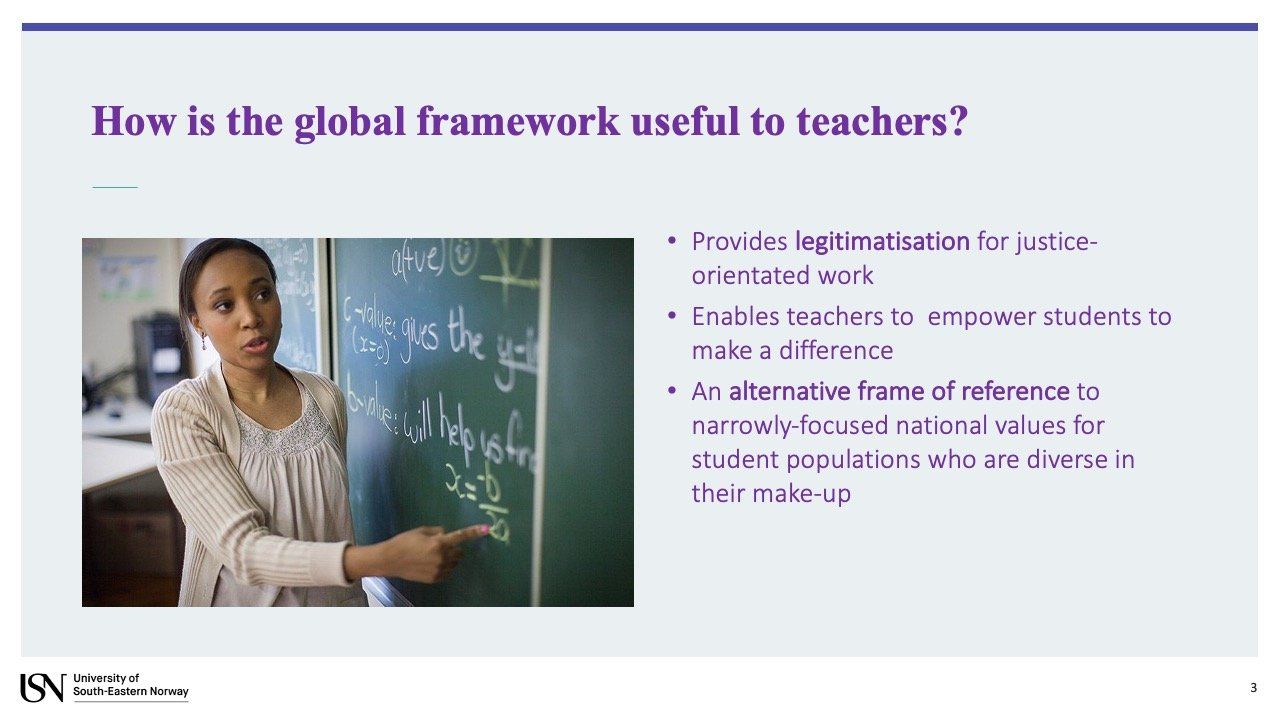
How then is the global framework useful for teachers?
Many teachers may struggle to engage in questions around justice, they may struggle to express points of view which are unpopular, or unfashionable with their government.
The international agreements support human rights education. That gives extra power and confidence to teachers, in many situations and it enables them to share that knowledge with their students.
Human rights education offers an alternative frame of reference to narrowly focused national values, that are sometimes promoted. It is really important amongst student populations who are diverse in their make-up. That's a very powerful element of the human rights framework.
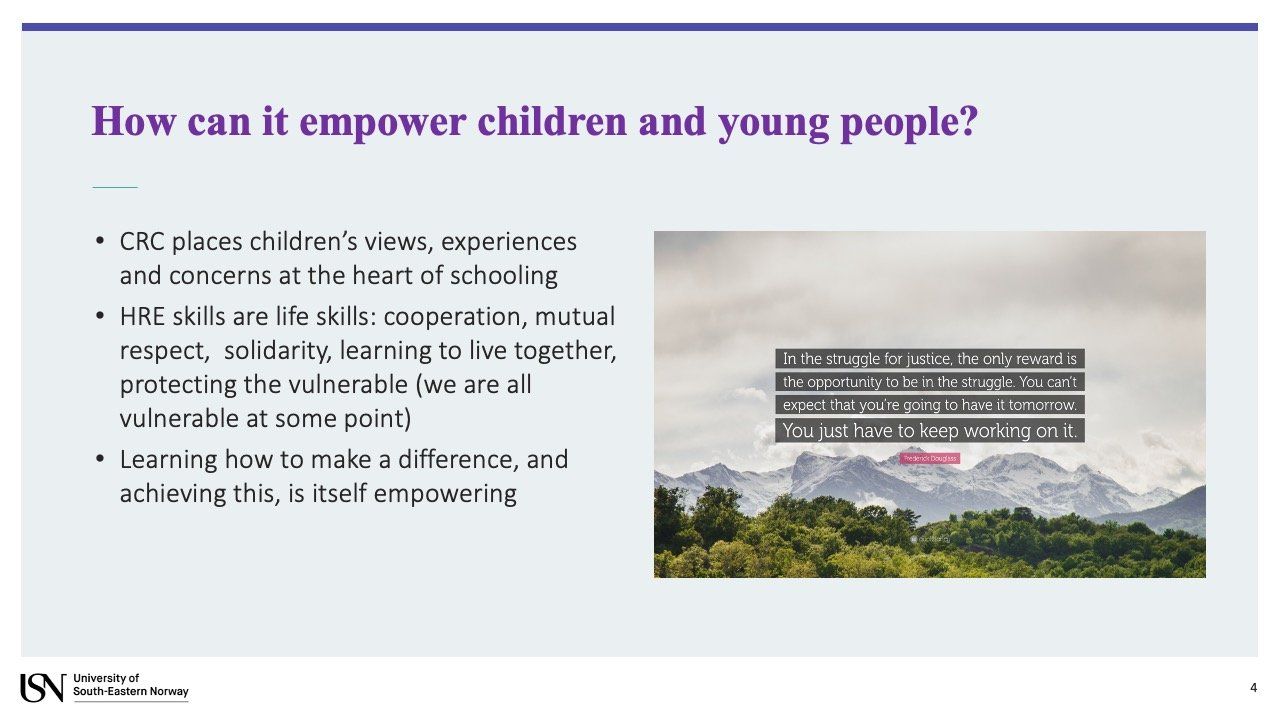
How can it empower children and young people?
The Convention on the Rights of the Child places children's views, experience and concerns at the heart of schooling. This is an important point. Some people may be anxious that children's concerns and experience of their rights sometimes may be in competition with those of adults, carers and parents. It's important to understand that the links between children's rights being put at the front, and those of parents and teachers, don't by any means have to be in conflict.
Human rights skills are life skills. They are important for all children to learn co-operation, mutual respect, solidarity, learning to live together, and protecting the vulnerable. That's the key point about human rights, and human rights education.
Human rights are about protecting the vulnerable, and it's important to remember that all of us are vulnerable at some point. Recognising that helps us frame solidarity in a framework which is much more equal. It's not giving to others, or being generous. It's actually mutual support.
Children can learn how to make a difference. It is clearly empowering when young people feel they can make a difference, that is going to change the whole atmosphere of school.
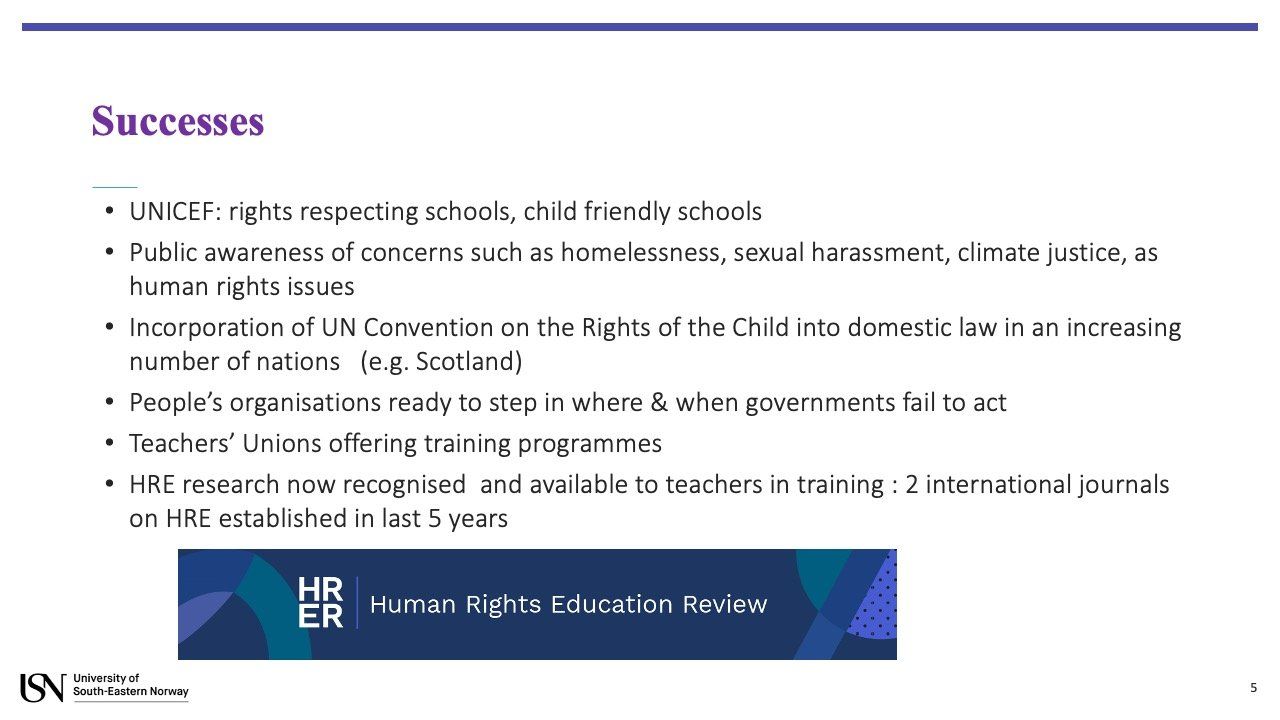
What are some of the successes of human rights?
Over the years we have seen global movements make a difference. We've seen UNICEF working on rights respecting schools, in the UK and also child friendly schools in other places too.
Another success for human rights education is the public awareness of concerns like homelessness, sexual harassment, climate change, and many other issues. The rights of sexual minorities is increasingly recognised by the public as human rights issues. Human rights do not just belong to others but they are the rights of us all.
We've seen the UN Convention on the Rights of the Child incorporated into domestic law in so many nations. This hasn't happened yet in the United Kingdom, but we've seen a strong effort to make that happen in Scotland. Although there was a challenge in the High Court, people are working very hard to ensure that the UN Convention on the Rights of the Child is incorporated into domestic law, which teachers, and teachers unions, can pay play a very important role in.
Another success of human rights education is demonstrated by organisations ready to step in and step up when governments fail. Governments have an obligation to ensure that children have the right to human rights education, and to uphold our human rights. When they don't do that it is our obligation as citizens, to step up and make that happen.
Teachers unions internationally, offering training programmes in human rights education, is encouraging. This is happening in our universities, although there is still very little opportunity for teachers to study human rights on a uniform basis. Across the board it is growing, but it is not by any means a guaranteed part of initial teacher training.
In many places human rights education research is now recognised, there are people studying in this field, doing PhD’s, and research is now available to teachers. In the last five years we now see journals on human rights education available to teachers, they are Open Access so there is no paywall, available to teachers and to the public.
Since I've been closely involved in the journal Human Rights Education Review, we've published the first article on human rights education in Nigeria, by a young scholar raising many real issues and suggesting ways forward for human rights education in that context.
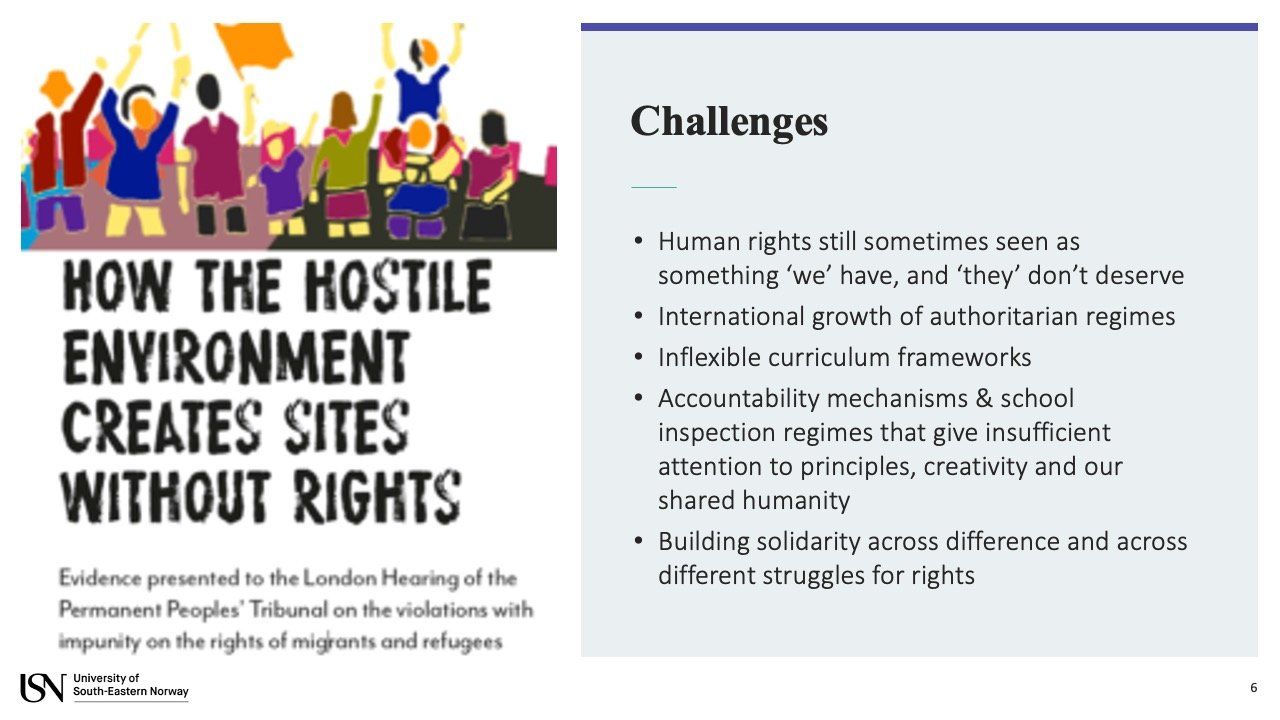
Where are the challenges?
Human rights remain something that we often see that we have, but there is still very much a divide between those who have access to them and those who don’t.
Human rights education is sometimes presented in established democratic countries, as if human rights are assumed, and that in other countries people don't have them. There is a risk in human rights education of promoting a sense of superiority, and we need to guard against this, looking carefully at the human rights violations in our own countries.
The international growth of authoritarian regimes across the world is another threat to human rights education. The inflexible curriculum frameworks in schools, accountability mechanisms, and inspection regimes, that give very little attention to principles of creativity and our shared humanity. We need to tackle these, recognising their threat not just to well-being but to human rights.
There is a challenge still in building solidarity across different organisations, and across different struggles for justice. Those that are building solidarity across different sites offer a means of strengthening the field, but it remains a challenge.
Bringing this competition into schools will start many vital conversations about all these issues with young people.
Find out more about the competition here.
Human Rights Education Review is Open Access, meaning the articles are not hidden behind a paywall but available to teachers and other education professionals.

